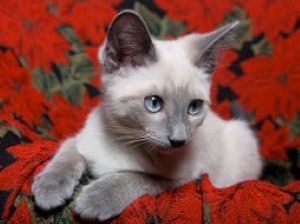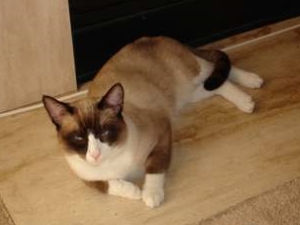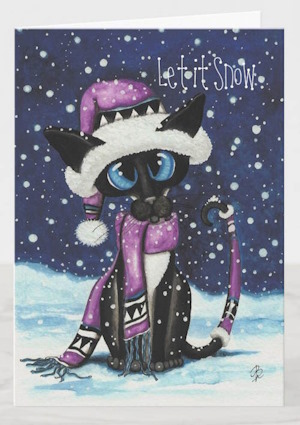Diarrhea in Cats
How can you stop diarrhea in cats? Can you cure it? Here we take a look at the causes, signs and symptoms, as well as possible treatments and what you can do to help if your cat has diarrhea.
A cat with diarrhea is absolutely no fun, as any owner who's experienced it will tell you – it's messy, unpleasant and worrying, both for you and your cats. It needs special, and sometimes urgent, attention, as it can cause severe dehydration if left untreated.
Diarrhea in kittens and other vulnerable cats (older ones, for example) can be life-threatening. Chronic diarrhea in cats can also indicate a serious underlying health problem.
Always seek veterinary advice if your cat has diarrhea for more than 24 hours – sooner if they show other signs of illness as well.
Signs and Symptoms of Diarrhea in Cats
These vary from mildly soft all the way through to explosive and extremely watery stools, which can be foul and strong-smelling and may also contain blood or mucus.
There may also be vomiting (particularly if the problem has been caused by something the cat has eaten) and your pet may refuse to drink and look generally unwell.
Bloody, watery diarrhea and cats who aren't drinking should always be treated by a vet.
What Causes Diarrhea in Cats? Reasons Can Include:
- A change in diet
- Spoiled food
- Dairy products or milk
- A bacterial or viral infection
- Worms
- Constipation (if feces are impacted, only liquids will get round them)
- An allergy
It may also indicate a more serious underlying condition, such as panleucopenia (cat distemper), inflammatory bowel disease, diabetes, or cancer.
How Do You Stop Cat Diarrhea?
Are there any home remedies or household cures for cat diarrhea? Here's what you can do yourself.
If your cat seems generally well apart from the diarrhea, try withholding food for 24 hours, then give them a light meal (fish or chicken with plain boiled rice are more easily digested than red meat).
If their appetite's good and the next stools are normal, there's probably no need to worry. In addition, the following tips may help.
- Keep food and water bowls scrupulously clean
- Ensure your cat has access to plenty of clean water at all times
- Avoid milk
- Wet food spoils more quickly than dry food. Don't leave wet food out indefinitely – if your cat doesn't eat it all at once, pick up any leftovers
- If you want to leave food out for your cat, invest in some dry food – cat kibble or 'crunchies'
Avoid the temptation to give 'over-the-counter' diarrhea remedies. If your cat is sick enough to need these, you're better off calling the vet for advice.
Cats and Cows’ Milk
Contrary to popular opinion, cows' milk isn't particularly good for cats. A lot of cats (and especially Orientals, including Siamese) lose the ability to digest lactose.
Milk and other dairy products will go straight through most Siamese and the resulting diarrhea is extremely nasty! This also applies to other cats, so if you suspect milk may be the cause of your cat's problem, stop giving it.
Veterinary Treatments
Veterinary treatment of persistent, serious diarrhea in cats will probably include an intravenous drip to restore water balance after dehydration.
It'll also aim to discover the cause of the problem, probably through blood, urine and feces samples so that any infections or other more serious underlying illnesses can be tackled.
Related Pages
Some of the articles and newsletters on this site may contain links to products I think you may enjoy. If
you purchase through these links I receive a small commission, but there's
no extra cost to you. Find out more on the Affiliates Disclosure page.
Have You Discovered Our Newsletter?
If not, why not? Subscribe to our email newsletter, Meezer Musings, to stay in touch, be the first to see new information and pages as they come out, and read the things we only talk about in the newsletter.
Learn more about it on our Newsletter Sign-Up page.




